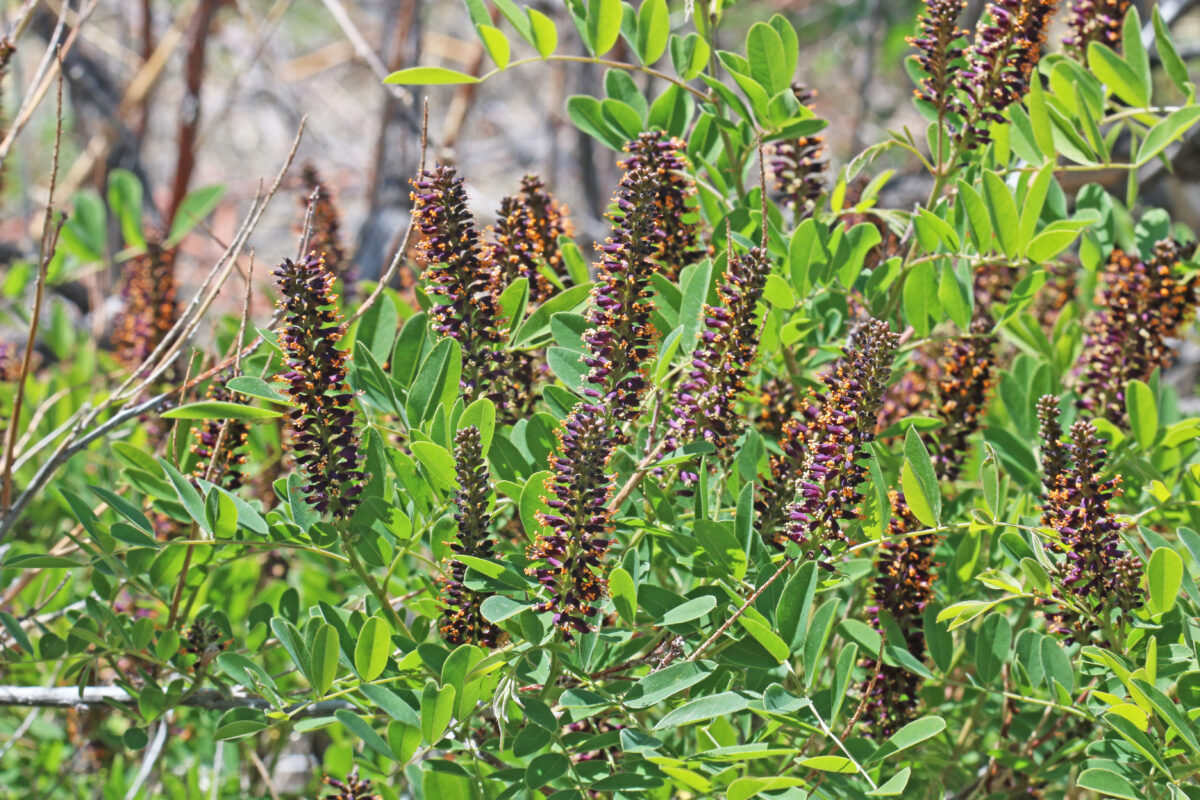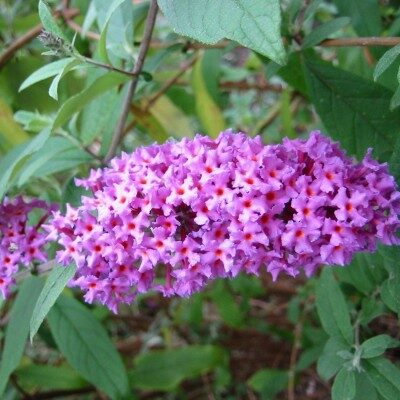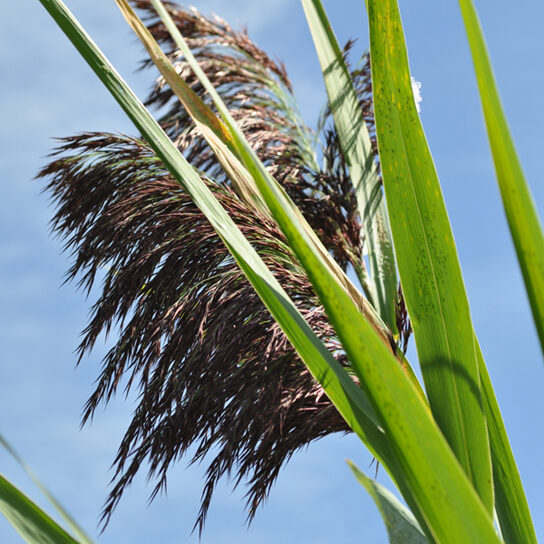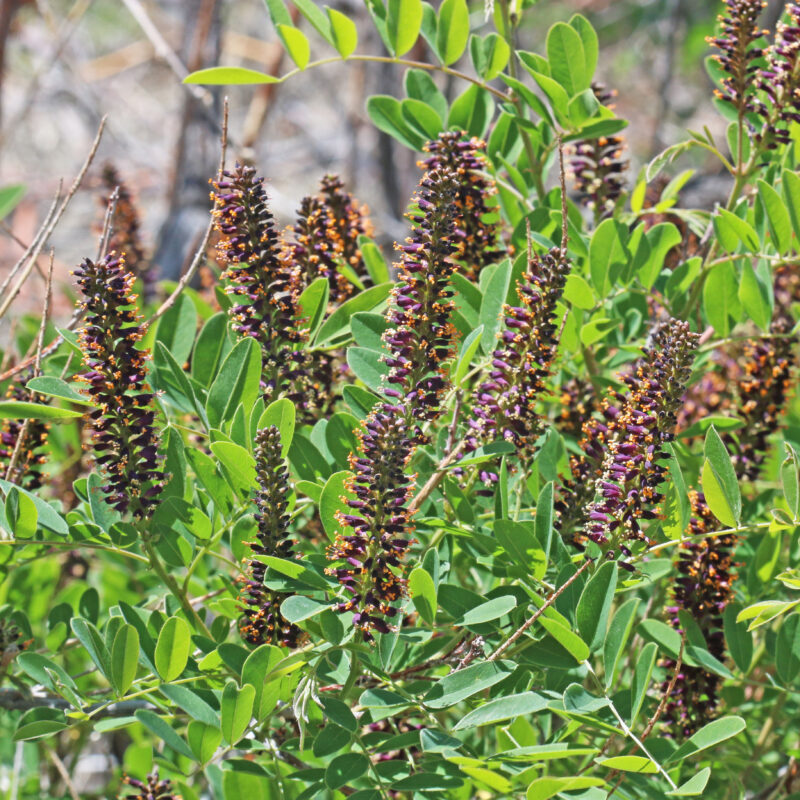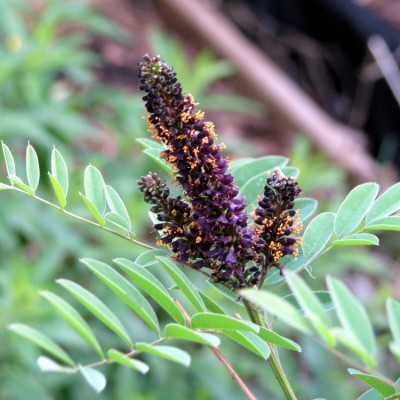
Desert false indigo bush (Amorpha fruticosa L.) is considered a perennial invasive species in Oregon. It’s often planted as an ornamental and can reach 20′ tall and twice as wide. The leaves are 4-8″ long with many oblong leaflets off the main stem. The scented flowers, which bloom in June, are purplish-blue with orange anthers sticking out from the stamen. The 1/4″ long fruit is curved and contains two seeds each.
This invasive plant is native to southern and eastern states in the U.S. It has an extensive root system and spreads rapidly, especially along stream and river corridorsCorridors Wildlife corridor: a stretch of habitat that connects natural areas separated by human land use. It displaces riparianRiparian areas The land alongside a stream, creek, river, or floodplain species and there is little information about how to control it. Cutting the plants may cause re-sprouting, but persistent cutting to get rid of the seeds can help control the overall spread.
Read more about Indigobush and other weeds from the 4-County Cooperative Weed Management Area’s fact sheets.
(Top photo by Andrey Zharkikh)
